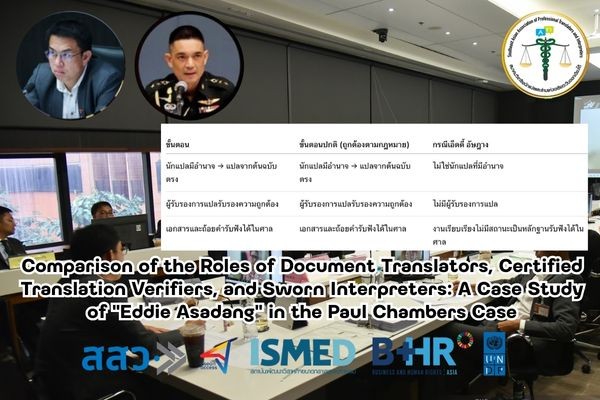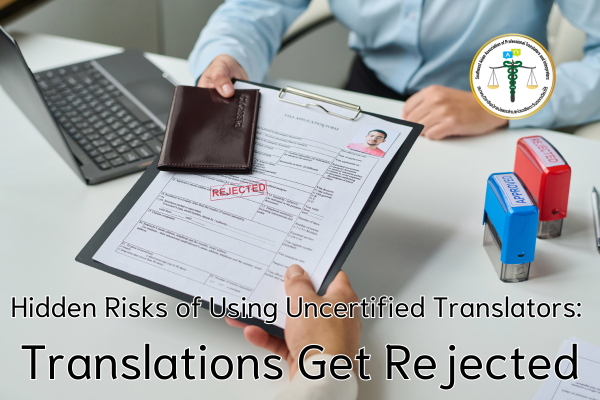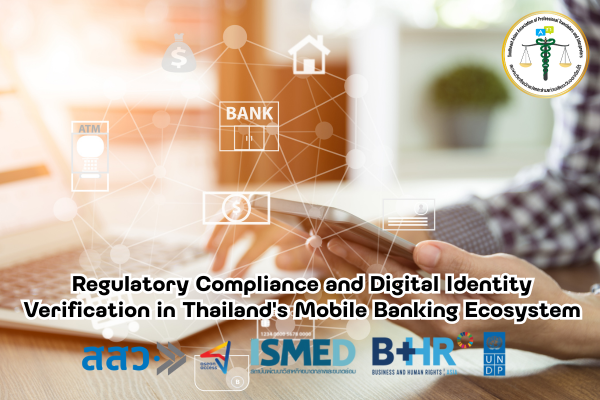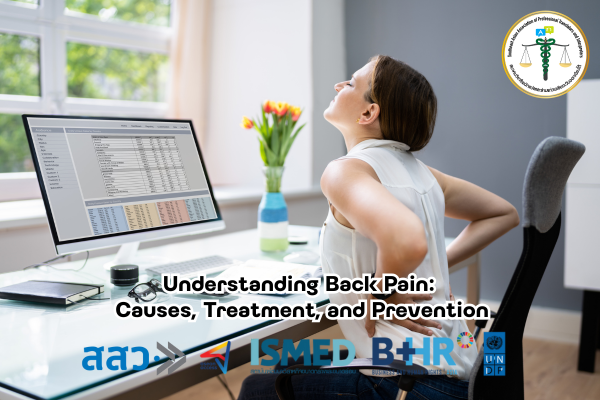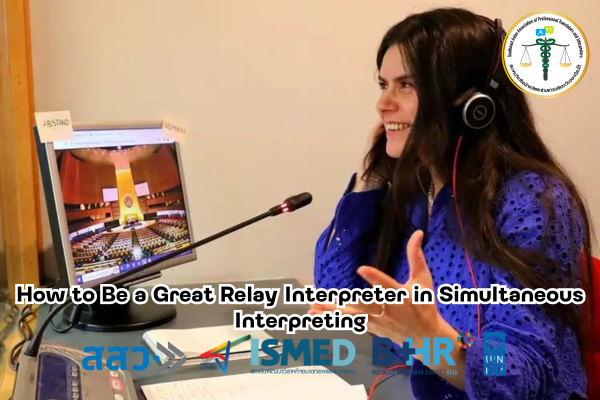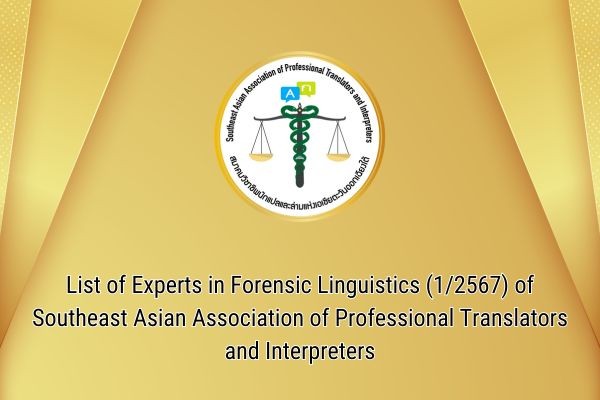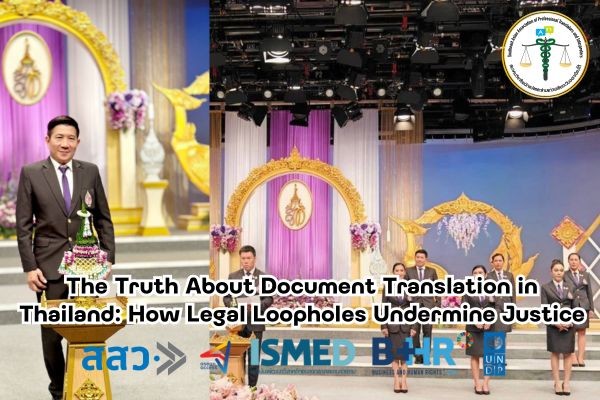Comparison of the Roles of Document Translators, Translation Certification Providers, and Courtroom Interpreters:
A Case Study of “Eddie Asadang” in the Paul Chambers Case
In legal proceedings, document translation and interpretation must strictly adhere to legal standards to protect the rights of parties and ensure the credibility of evidence. This article compares the roles and procedures of document translators, translation certification providers, and courtroom interpreters while analyzing the case of Eddie Asadang, whose compiled content was used against Paul Chambers without following proper legal translation procedures.
1. Standard Procedure for Certified Document Translators and Translation Certification Providers
Qualifications for Document Translators
- Translators must possess legally recognized qualifications (e.g., certification from professional bodies like SEAProTI).
- They must translate directly and accurately from the original documents, without inserting personal opinions or modifying the meaning.
Duties of Translation Certification Providers
- The Translation certification providers must thoroughly check the accuracy of the translation.
- They must issue a translation certification letter affirming the accuracy of the translation for official or legal use.
- Certified translations can be accepted as admissible evidence in court proceedings.
2. Court Interpreters and the Oath of Honesty
According to Section 13, paragraph 4 of the Thai Criminal Procedure Code:
- Court interpreters must swear an oath or make an affirmation before performing their duties.
- This oath serves as a legal commitment to perform their work honestly and without distortion.
If an interpreter fails to take the oath, any statements interpreted through them cannot be admitted as evidence in court (as established in Supreme Court Decision No. 648/2562).
3. Case Study: Eddie Asadang’s Compiled Content in the Paul Chambers Case
In the Paul Chambers case:
- “Eddie Asadang’s” work involved content compilation and rewriting, not proper document translation following legal standards.
- There was no certified translator involved, and no certified translation was issued.
- The process lacked verification of accuracy and compliance with official standards.
Result:
The compiled work, therefore, cannot be admitted as legal evidence.
It is comparable to using an interpreter who fails to swear an oath that the information produced cannot be legally relied upon.
Summary Table: Standard Process vs. Eddie Asadang’s Case
| Process | Standard Legal Procedure | Eddie Asadang’s Work |
|---|---|---|
| Translator authorized and translating directly from the original | The translator is authorized and translates accurately | No legally authorized translator |
| Translation verified and certified for accuracy | Certified by an authorized verifier | No verification or certification |
| Interpreter sworn in before acting | The interpreter swears or affirms to be truthful | No oath or affirmation taken |
| Documents and statements admissible in court | Accepted as legal evidence | Compiled work not admissible as evidence |
Legal Conclusion
“The compiled work by Eddie Asadang does not qualify as admissible evidence under Section 134/4 of the Thai Criminal Procedure Code. It is comparable to using an interpreter who has not sworn an oath, rendering the statements produced inadmissible in court.”
Question:
If an interpreter has not sworn or affirmed according to Section 13, paragraph 4 of the Criminal Procedure Code, can their interpreted statements be admissible?
Answer (Reference: Supreme Court Judgment No. 648/2562):
The defendant was unable to speak or understand the Thai language. Although the investigating officer arranged for a tourist police officer and a person named P. to act as interpreters to translate the interrogation for the defendant during the investigation, it did not appear that the interpreters had sworn or affirmed to faithfully perform their duties as required under Section 13, paragraph 4 of the Criminal Procedure Code.
Therefore, the defendant’s confession cannot be admitted as evidence to prove the defendant’s guilt pursuant to Section 134/4 of the Criminal Procedure Code.
SEAProTI’s certified translators, translation certification providers, and certified interpreters:
The Southeast Asian Association of Professional Translators and Interpreters (SEAProTI) has officially announced the criteria and qualifications for individuals to register as “Certified Translators,” “Translation Certification Providers,” and “Certified Interpreters” under the association’s regulations. These guidelines are detailed in Sections 9 and 10 of the Royal Thai Government Gazette, issued by the Secretariat of the Cabinet under the Office of the Prime Minister of the Kingdom of Thailand, dated July 25, 2024, Volume 141, Part 66 Ng, Page 100.
To read the full publication, visit: the Royal Thai Government Gazette
เปรียบเทียบขั้นตอนการทำงานของนักแปลเอกสาร ผู้รับรองการแปล และล่ามที่สาบานตน: กรณีศึกษา “เอ็ดดี้ อัษฎาง” กับคดีพอล เชมเบอร์ส (Paul Chambers)
ในกระบวนการยุติธรรม การแปลเอกสารและการแปลคำให้การในศาลมีมาตรฐานทางกฎหมายที่เข้มงวด เพื่อคุ้มครองสิทธิของคู่ความและสร้างความน่าเชื่อถือของพยานหลักฐาน บทความนี้จะนำเสนอการเปรียบเทียบขั้นตอนการทำงานของ นักแปลเอกสาร, ผู้รับรองการแปล, และ ล่ามที่สาบานตน พร้อมวิเคราะห์กรณีของ “เอ็ดดี้ อัษฎาง” ที่นำเสนอเนื้อหาในคดี พอล เชมเบอร์ส แต่ขาดกระบวนการตามกฎหมายที่กำหนด
1. ขั้นตอนปกติของนักแปลเอกสารและผู้รับรองการแปลที่ถูกต้องตามกฎหมาย
คุณสมบัตินักแปลเอกสาร
- ต้องมีอำนาจหรือคุณสมบัติที่ผ่านการรับรองตามมาตรฐาน เช่น SEAProTI
- ต้องแปลตรงจากต้นฉบับอย่างแม่นยำ ไม่เติมความคิดเห็นหรือบิดเบือนเนื้อหา
หน้าที่ผู้รับรองการแปล
- ตรวจสอบความถูกต้องของการแปลอย่างละเอียด
- ออกหนังสือรับรองการแปลที่รับผิดชอบต่อความถูกต้องตามกฎหมาย
- เอกสารที่ผ่านการรับรองสามารถใช้เป็นพยานหลักฐานในศาลได้
2. ขั้นตอนของล่ามในกระบวนการพิจารณาคดี: การสาบานตน
ตาม ประมวลกฎหมายวิธีพิจารณาความอาญา มาตรา 13 วรรค 4
- ล่ามต้อง สาบานตนหรือปฏิญาณตน ต่อศาลว่าจะปฏิบัติหน้าที่ด้วยความซื่อสัตย์สุจริต
- การสาบานตนเป็นเงื่อนไขสำคัญก่อนที่ล่ามจะทำการแปลคำให้การของพยานหรือจำเลย
- หากล่ามไม่สาบานตน คำให้การที่ล่ามแปลจะ ไม่สามารถรับฟังเป็นพยานหลักฐานได้ ตามคำพิพากษาศาลฎีกาที่ 648/2562
3. กรณีศึกษา: งานเรียบเรียงของ “เอ็ดดี้ อัษฎาง” กับคดีพอล เชมเบอร์ส
ในคดีของพอล เชมเบอร์ส:
- งานของ “เอ็ดดี้ อัษฎาง” เป็นเพียงการ รวบรวมและเรียบเรียงคอนเทนต์
- ไม่ได้ผ่านกระบวนการแปลอย่างถูกต้องตามหลักวิชาชีพการแปล
- ไม่มีนักแปลที่มีอำนาจตามกฎหมายมารับรอง
- ไม่มีการรับรองการแปลที่สามารถยืนยันความถูกต้องและความตรงจากต้นฉบับได้
ผลลัพธ์:
งานดังกล่าวจึง ไม่มีสถานะเป็นพยานหลักฐานที่ศาลสามารถรับฟังได้ เปรียบได้กับการใช้ล่ามที่ไม่ได้สาบานตนในกระบวนการยุติธรรม
ตารางสรุปเชิงเปรียบเทียบ
| ขั้นตอน | ขั้นตอนปกติ (ถูกต้องตามกฎหมาย) | กรณีเอ็ดดี้ อัษฎาง |
|---|---|---|
| นักแปลมีอำนาจ → แปลจากต้นฉบับตรง | นักแปลมีอำนาจ → แปลจากต้นฉบับตรง | ไม่ใช่นักแปลที่มีอำนาจ |
| ผู้รับรองการแปลรับรองความถูกต้อง | มีผู้รับรองความถูกต้อง | ไม่มีผู้รับรองการแปล |
| ล่ามสาบานตนก่อนทำหน้าที่ | ล่ามสาบานหรือปฏิญาณตน | ไม่มีการสาบานตนหรือปฏิญาณตน |
| เอกสารและถ้อยคำรับฟังได้ในศาล | เอกสารรับฟังได้เป็นหลักฐานในศาล | งานเรียบเรียงไม่มีสถานะเป็นพยานหลักฐาน |
สรุปทางกฎหมาย
“งานของเอ็ดดี้ อัษฎางไม่มีสถานะเป็นพยานหลักฐานตามประมวลกฎหมายวิธีพิจารณาความอาญา มาตรา 134/4 เปรียบเทียบได้กับล่ามที่ไม่สาบานตนในคดีอาญา ซึ่งทำให้ถ้อยคำที่ได้มาใช้เป็นหลักฐานไม่ได้”
ถามในเคสที่เกี่ยวข้อง:
ล่ามไม่ได้สาบานตัวตาม ป.วิ.อ.มาตรา 13 วรรค 4 ถ้อยคำรับฟังได้หรือไม่
คำตอบ:
ดู คำพิพากษาศาลฎีกาที่ 648/2562 จำเลยไม่สามารถพูดหรือเข้าใจภาษาไทยได้ แม้พนักงานสอบสวนจัดให้เจ้าพนักงานตำรวจท่องเที่ยวและ พ. เป็นล่ามแปลคำให้การชั้นสอบสวนให้จำเลยฟัง แต่ก็ไม่ปรากฏว่า ล่ามได้สาบานหรือปฏิญาณตนว่าจะทำหน้าที่โดยสุจริตใจตามประมวลกฎหมายวิธีพิจารณาความอาญามาตรา 13 วรรค 4 ถ้อยคำรับสารภาพดังกล่าวของจำเลยจึงไม่สามารถรับฟังเป็นพยานหลักฐานเพื่อพิสูจน์ความผิดของจำเลยได้ตามประมวลกฎหมายวิธีพิจารณาความอาญามาตรา 134/4 แปล
เกี่ยวกับนักแปลรับรอง ผู้รับรองการแปล และล่ามรับรองของสมาคมวิชาชีพนักแปลและล่ามแห่งเอเชียตะวันออกเฉียงใต้
สมาคมวิชาชีพนักแปลและล่ามแห่งเอเชียตะวันออกเฉียงใต้ (SEAProTI) ได้ประกาศหลักเกณฑ์และคุณสมบัติผู้ที่ขึ้นทะเบียนเป็น “นักแปลรับรอง (Certified Translators) และผู้รับรองการแปล (Translation Certification Providers) และล่ามรับรอง (Certified Interpreters)” ของสมาคม หมวดที่ 9 และหมวดที่ 10 ในราชกิจจานุเบกษา ของสำนักเลขาธิการคณะรัฐมนตรี ในสำนักนายกรัฐมนตรี แห่งราชอาณาจักรไทย ลงวันที่ 25 ก.ค. 2567 เล่มที่ 141 ตอนที่ 66 ง หน้า 100 อ่านฉบับเต็มได้ที่: นักแปลรับรอง ผู้รับรองการแปล และล่ามรับรอง


